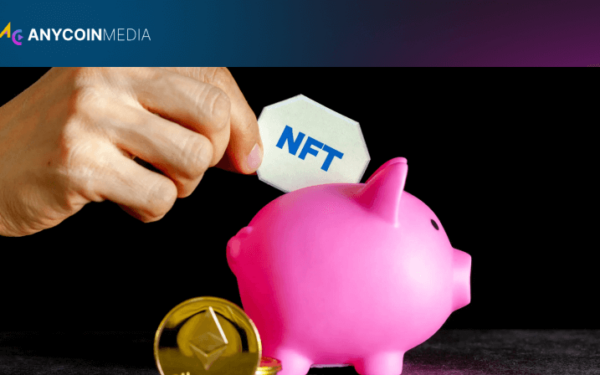Cryptocurrency has become an essential project for international tax authorities. The Internal Revenue Service (IRS), the US tax agency, has been particularly active in developing modern strategies in music and the taxation of cryptocurrency transactions. As we approach 2024, the IRS’s approach to monitoring cryptosports is becoming increasingly sophisticated, using advanced technology and increased reporting requirements to ensure compliance in this area of digital assets.
The IRS’s work to address the issue of cryptocurrency taxation began in earnest in 2014 when it issued its first guidance on the issue. Since then, the organization has continually adapted its methods to keep up with the rapid trends in the cryptocurrency world. By 2024, the IRS will have implemented a multifaceted methodology that combines technological solutions, legal framework, and global cooperation to strengthen the vast Internet through crypto transactions.
The IRS’s current strategy for tracking cryptocurrency involves several interconnected components:
Each addition plays a vital role in the IRS’s ability to successfully identify, track, and tax cryptocurrency transactions. The synergy between these factors has created a powerful machine that leaves no stone unturned in pursuing tax compliance.
Blockchain assessment software is at the forefront of the IRS’s technological arsenal. These sophisticated tools allow the company to track transactions across various blockchain networks, linking addresses to accurate global identifiers and correlating complex transaction flows. The software’s ability to de-anonymize blockchain statistics is becoming increasingly unique, making it an effective weapon in the IRS’ cryptocurrency monitoring efforts.
One of the most direct ways the IRS gathers information on cryptocurrency holders is through data collection from exchanges. In 2024, this process has become highly streamlined and comprehensive. Major exchanges operating in the United States are required to report user transaction data directly to the IRS, similar to how traditional financial institutions report on their customers’ activities.
The information collected includes:
This wealth of data provides the IRS with a clear picture of an individual’s cryptocurrency activities, allowing for easy cross-referencing with tax returns to identify discrepancies or unreported income.
The implementation of these reporting requirements has significantly increased the visibility of cryptocurrency transactions to the IRS. While some users may attempt to circumvent these measures by using decentralized exchanges or peer-to-peer transactions, the agency’s other tracking methods often catch these activities as well.
In 2024, the IRS has expanded its reporting requirements for cryptocurrency transactions, placing a greater onus on individuals and businesses to disclose their digital asset activities. These enhanced requirements are designed to close loopholes and ensure more comprehensive reporting of crypto-related income and capital gains.
Key aspects of the enhanced reporting requirements include:
These expanded requirements have significantly increased the IRS’s visibility into the crypto activities of taxpayers. By mandating such detailed reporting, the agency has made it much more difficult for individuals to overlook or intentionally omit cryptocurrency transactions from their tax returns.
The implementation of these requirements has been accompanied by severe penalties for non-compliance, serving as a strong deterrent against under-reporting or failing to disclose crypto activities. This comprehensive approach ensures that the IRS has a more complete picture of an individual’s cryptocurrency dealings, allowing for more accurate tax assessments.
Cryptocurrency’s borderless nature necessitates international cooperation for effective tracking and taxation. In 2024, the IRS has significantly expanded its international information sharing networks, collaborating with tax authorities worldwide to exchange data on cryptocurrency transactions and holdings.
This global approach involves:
Through these partnerships, the IRS can track transactions that cross borders, identify offshore holdings, and pursue tax evaders who attempt to use foreign exchanges or wallets to hide their crypto assets. This international web of information sharing has dramatically reduced the ability of individuals to use cryptocurrency as a means of evading taxes across jurisdictions.
The effectiveness of this international cooperation has been evident in several high-profile cases where individuals attempting to conceal crypto assets in foreign accounts were successfully identified and prosecuted. These cases serve as powerful deterrents and demonstrate the global reach of the IRS’s tracking capabilities.
Artificial Intelligence (AI) and machine learning have become integral to the IRS’s crypto tracking efforts in 2024. These advanced technologies enable the agency to process vast amounts of data, identify patterns, and flag suspicious activities with unprecedented efficiency and accuracy.
Key applications of AI and machine learning in crypto tracking include:
The implementation of these AI-driven systems has significantly enhanced the IRS’s ability to detect and investigate potential cases of tax evasion or fraud involving cryptocurrencies. By automating many aspects of data analysis and pattern recognition, the agency can allocate its human resources more effectively, focusing on the most complex and high-priority cases.
These technological advancements have not only improved the efficiency of crypto tracking but have also increased the accuracy of tax assessments related to digital assets. The AI systems can quickly identify discrepancies between reported income and observed crypto activities, prompting further investigation where necessary.
Recognizing the unique challenges posed by cryptocurrency, the IRS has established specialized units dedicated to investigating complex crypto-related cases. These units are staffed by experts in blockchain technology, cybersecurity, and financial forensics, equipped with the latest tools and training to tackle sophisticated tax evasion schemes involving digital assets.
The responsibilities of these specialized units include:
These dedicated units have proven instrumental in handling the most challenging cases of crypto-related tax non-compliance. Their specialized knowledge and focus allow for more effective investigations and prosecutions, sending a clear message about the IRS’s commitment to enforcing tax laws in the digital asset space.
Despite the significant advancements in crypto tracking capabilities, the IRS continues to face challenges in this rapidly evolving field. The emergence of privacy coins, layer-2 scaling solutions, and decentralized finance (DeFi) platforms presents new obstacles for tax authorities. Additionally, the global and decentralized nature of many crypto projects complicates enforcement efforts.
Looking ahead, the IRS is likely to continue investing in cutting-edge technologies and expanding its international cooperation to address these challenges. Potential future developments may include:
As the cryptocurrency ecosystem continues to evolve, so too will the methods employed by the IRS to track and tax digital assets. The agency’s adaptive approach and willingness to embrace new technologies suggest that it will remain at the forefront of crypto tax enforcement for years to come.





